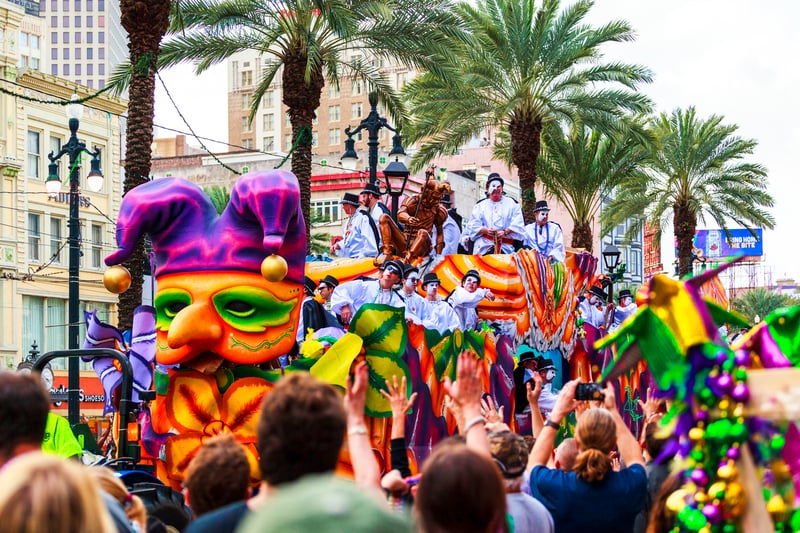Is Lent in the Bible?
Each year, millions observe Lent in preparation for Easter. Where did this practice originate from? Should Christians observe Lent? Is Lent biblical?

Lent is an annual period of 40 days observed by some Christian denominations leading up to Easter. It involves prayer, fasting and abstinence.
Where is Lent in the Bible?
Lent is mentioned nowhere in the Bible. If you search the Bible, you will not find the practice of Lent anywhere in its pages.
Do only Catholics celebrate Lent?
No, Lent is also observed in various forms by the Orthodox, Anglicans, Lutherans, Methodists and some Presbyterian churches.
Where did Lent come from?
In the fourth century, a controversy arose revolving around whether the Catholic Church should teach Christians to celebrate Easter or Passover, and what Christians should do beforehand.
In 325, the Council of Nicaea formalized Easter observance and forbade the keeping of Passover. (To learn more, read “5 Major Differences Between Passover and Easter.”)
Prior to this, however, there were various fasting traditions before the spring observance. Around 190, Irenaeus wrote to the leader of the Roman church, “For some think they ought to fast for one day, others for two days, and others even for several, while others reckon forty hours both of day and night to their fast.” This shows there was no apostolic tradition or teaching of a 40-day fast.
Nothing in the Bible indicates Jesus expected His followers to imitate His 40 days in the wilderness in any way.
The Catholic Encyclopedia states: “There is the same silence observable in all the pre-Nicene Fathers, though many had occasion to mention such an Apostolic institution if it had existed.” In other words, before the Council of Nicaea, there was no tradition of a 40-day fast.
In 461, nearly four centuries after the apostolic era, Pope Leo I attempted to link the tradition with the apostles when he wrote: “Fulfill with their fasts the Apostolic institution of the 40 days.”
However, even The Catholic Encyclopedia questions this assertion.
According to Catholic Customs and Traditions: A Popular Guide, “A distinct and lengthy season of preparation [for Easter] did not exist until the early 4th century” (Greg Dues, 1992, p. 74).
The tradition of fasting, or abstaining from something, for the 40 days before Easter developed in the centuries after the New Testament era. Nothing in the Bible indicates Jesus expected His followers to imitate His 40 days in the wilderness in any way.
(For more about the actual lessons we can learn from Jesus’ ordeal in the wilderness, read “Jesus’ Temptation in the Wilderness: What Can It Teach Us?”)
What do people do during Lent?
In the early days of this tradition, it was kept mainly by new Catholic converts as a period of repentance and reflection before Easter. However, later it became common for all to practice it.
As the observance of Lent spread, different traditions evolved, with some excluding weekends and others only Sundays.
For Roman Catholics, Lent begins on Ash Wednesday, 46 days before the Saturday before Easter Sunday.
Typically, during Lent adherents abstain from meat on Fridays. On Sundays, sometimes called “little Easters,” feasting is permitted to celebrate the joy of Christ’s resurrection.
Today, fasting rules are more relaxed, with most observant Catholics only abstaining from luxury items of their choosing for the 40 days of Lent. This may be a favorite food, drink or a habit (such as smoking, social media, video games or eating out).
Adherents are also encouraged to read, pray and give more during the 40 days.
For Roman Catholics, Lent begins on Ash Wednesday, 46 days before the Saturday before Easter Sunday. Not counting Sundays, this is 40 days. (For those of the Eastern Orthodox tradition, Lent begins seven weeks before Easter Sunday and includes Sundays, but stops before Palm Sunday.)
On Ash Wednesday, when Lent begins, participants have ashes smeared on their forehead, often in the shape of a cross, as a sign of penance and a reminder of human mortality. Like Lent itself, this tradition has no scriptural basis and didn’t start until about the eighth century.
Does Lent have a pagan connection?
Upon Rome’s acceptance of Christianity, numerous pagan festivals, such as Saturnalia and Lupercalia, became incorporated into its adaptation of Christianity. These pagan festivals became the modern Christmas and Valentine’s Day. Fertility celebrations of the spring eventually morphed into modern Easter celebrations. (To learn more, read “The Surprising History of Easter.”)
Fat Tuesday. Mardi Gras is a celebration of the last chance adherents have to eat forbidden foods before the fasting of Lent begins on Ash Wednesday.
The period of Lent is preceded by Mardi Gras, or “Fat Tuesday.” This is associated with carnival, meaning “the removal of meat.” That’s because Mardi Gras was the last chance adherents had to eat the forbidden foods before the fasting of Lent began on Ash Wednesday.
According to one source: “[Carnivals] reflected pre-Christian revelry and masquerading associated with ancient pagan observance of spring and New Year festivals celebrated at the spring or vernal equinox. Because church discipline forbade this kind of revelry during Lent, it was natural that it be substituted by a pre-lenten party-time” (Catholic Customs and Traditions: A Popular Guide, p. 76).
Wild partying on Mardi Gras can still be witnessed in many places, especially in cities like Rio de Janeiro, Brazil, and New Orleans, Louisiana. (To learn more, read “Mardi Gras: Should It Be on the Christian Calendar?”)
Given that these practices are found nowhere in the Bible, we must ask: What does God think of Lent?
God defines correct worship
While numerous traditional Christian practices have origins in pagan rituals, some argue that they are permissible if performed sincerely in service to God.
But God says otherwise.
God warns His people not to look at other peoples and say, “How did these nations serve their gods? I also will do likewise” (Deuteronomy 12:30).
What’s worse, even as traditional Christianity added nonbiblical observances, it thoroughly discarded the observances found in the Bible!
Consider the following:
The early Church observed the Sabbath. Jesus, our Lord and Savior, kept the Sabbath as His custom (Luke 4:16). The apostle John encourages us to follow in Christ’s footsteps and “walk just as He walked” (1 John 2:6).
Paul, the apostle to the gentiles, preached to the gentile city of Corinth “every Sabbath” (Acts 18:1, 4). In Thessalonica, he preached on the Sabbath and persuaded a “great multitude of the devout Greeks” (Acts 17:1-4).
(To learn more, read “Who Changed the Day of Worship From Saturday to Sunday? Why?”)
Regarding the new Passover symbols He instituted, Jesus told His disciples, “Do this in remembrance of Me” (Luke 22:19). The apostle Paul, addressing a gentile congregation, taught them to keep it “on the same night in which He was betrayed”—the evening of the Passover (1 Corinthians 11:23-25).
To learn more, read “5 Major Differences Between Passover and Easter.”
The early Church observed God’s festivals. Paul used the analogy of leaven to teach the congregations in Corinth and Galatia that sin must be removed. Otherwise, it will affect everyone (1 Corinthians 5:6-8; Galatians 5:9). This analogy would make little sense if they were not celebrating the Feast of Unleavened Bread, when God’s people are commanded to remove leaven (Exodus 12:15; Leviticus 23:6).
We encourage our readers to look into the festivals that God commanded in the Bible. Those observances are much more meaningful than man-made days like Lent, Ash Wednesday and Mardi Gras.
For more on God’s plan, see “Plan of Salvation: How God’s Festivals Reveal His Plan.”
Date Posted: March 3, 2025



